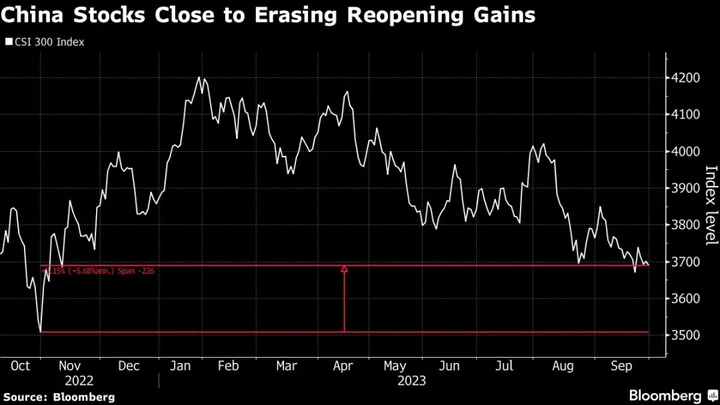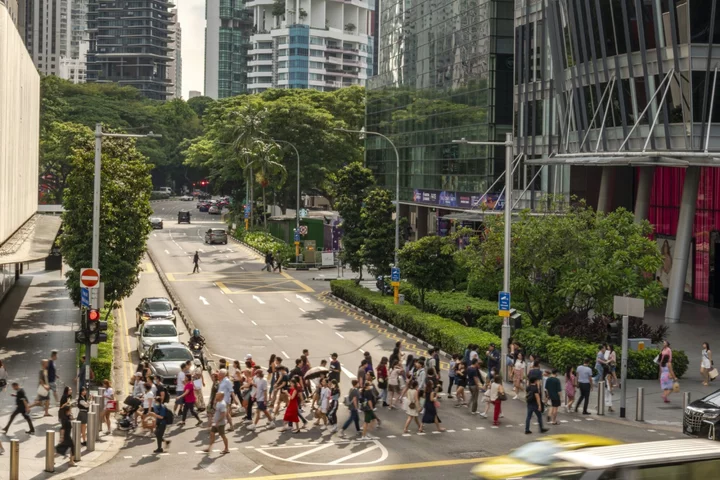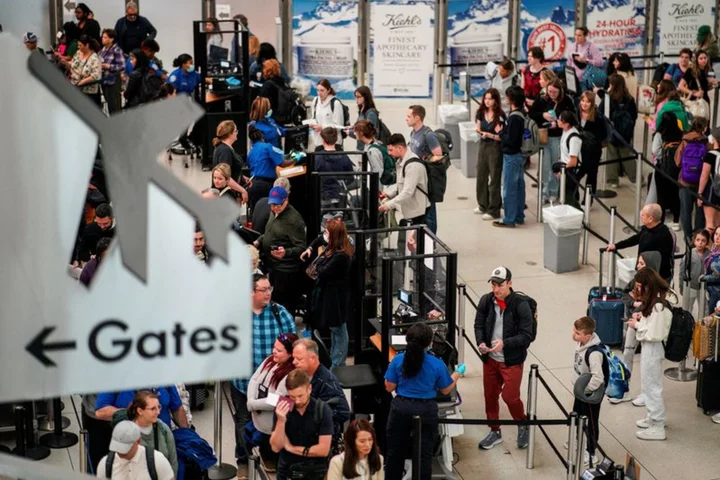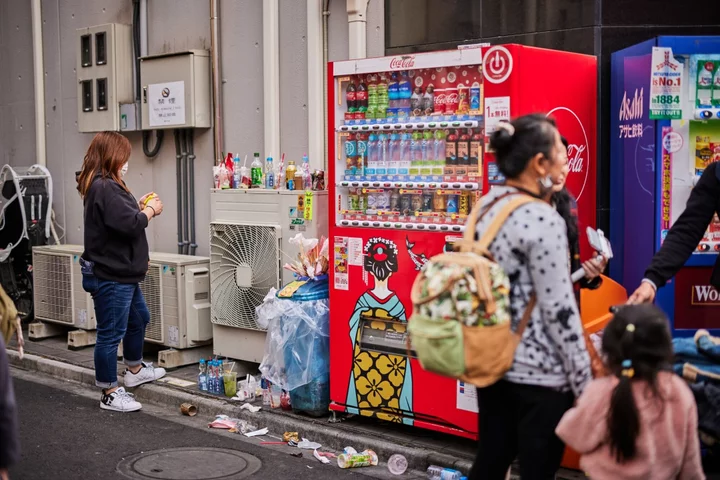Chinese markets are set to reopen after the Golden Week holidays against an uncertain global market backdrop, which may temper optimism from the spending boom at home.
A lot has happened overseas while mainland markets were shut. Risk assets were hammered as renewed concern about higher-for-longer US interest rates spurred a Treasuries selloff that rippled through world markets. On the domestic front, however, tourism revenue from the holidays surged year-on-year, adding to bets that China’s economy has likely bottomed.
The conflicting signals set the stage for a choppy start for mainland equities on Monday. A gauge of Chinese shares listed in Hong Kong rose on Friday, helping trim its losses since Sept. 28 — when onshore markets last traded — to 0.3%. Meanwhile, an index of the nation’s US-listed stocks has gained 0.3% in the period. The offshore yuan has weakened about 0.2% against the dollar.
“The Golden Week consumption data should give more confidence to markets that demand is stabilizing, which may help boost sentiment for consumer and service sectors,” said Marvin Chen, a strategist with Bloomberg Intelligence. “But easing domestic worries come with rising external headwinds from markets adjusting to higher-for-longer Fed rates.”
Traders had been pinning their hopes on a holiday consumption boost to provide new catalyst for the sluggish market. Travel and spending surged compared with lockdown-hit 2022, with 826 million travelers representing a 71% increase from last year. Spending jumping nearly 130%. Other key sets of data released during the break also showed the broader economy is on the mend, though far from roaring back.
READ: China Holiday Spending +153% vs 2019 in Meituan Data: News
Investors will weigh these modest improvements against concerns about tighter Federal Reserve policy following a hotter-than-expected US jobs report. China is seen at particular risk as a wider interest-rate gap with the US can increase pressure on the yuan and accelerate a capital flight.
The CSI 300 Index, a benchmark of onshore Chinese stocks, was down 4.7% for the year before heading into the break. A further 4.9% decline will see it erase all its gains from the reopening rally that took off in October 2022. Reaching that grim milestone may embolden China skeptics, who continue to shun the market due to deepening property-sector woes and geopolitical concerns.
The housing market slump remains a major overhang, with the crisis embroiling debt-ridden developer China Evergrande Group and other key builders showing little signs of abating. Home sales continued to post double-digit declines from a year earlier in September, a traditionally busy season for builders, underscoring weak buyer confidence despite a recent slew of property easing measures.
Some investors, however, say this year’s relentless selloff has created some buying opportunities. There are also hopes that the upcoming third plenum of the 20th Party Congress, a gathering of top leaders to discuss major economic and reform issues, will offer hints of further stimulus. The meeting, to be held toward the end of October and early November, could act as a positive catalyst, said Chen of Bloomberg Intelligence.
“We can expect a recovery toward the end of the year or early next year with the economy coming toward the end of the de-stocking cycle, and as we see more coordinated policy efforts to tackle the weak economy,” said Elizabeth Kwik, investment director of Asian equities at abrdn Plc.
For now, winning back foreign investors is proving to be hard. Global funds sold Chinese shares on a net basis for a second consecutive month in September, trimming their exposure to the lowest level since 2020. Pessimism is such that “short China equities” emerged as one of the biggest convictions among money managers in the latest Bank of America Corp. monthly survey.
“We have economic data showing improvement so that’s a good start, but markets are skeptical given how confidence was badly damaged,” said Christopher Wong, FX strategist at Oversea-Chinese Banking Corp. in Singapore. It will take time for Chinese markets to recover, he added, as “sentiment needs to recover and confidence needs to be repaired.”
--With assistance from Iris Ouyang.









